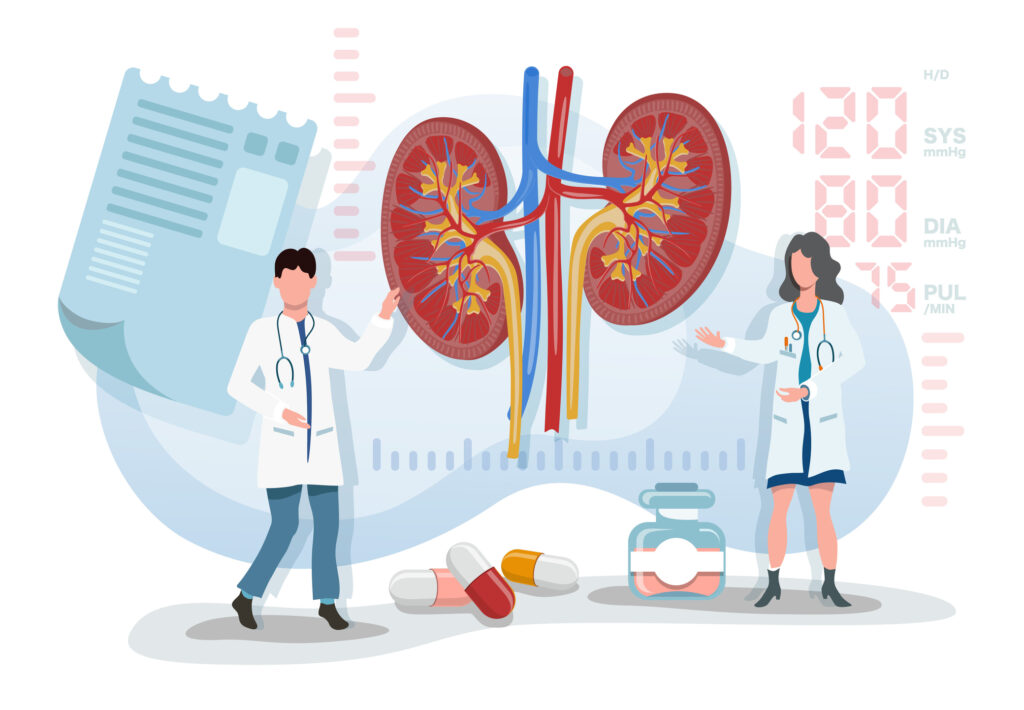When it comes to managing kidney disease, knowledge is power, and your lab results are one of the most powerful tools you have. Understanding a few key health numbers can help you take charge of your condition, delay progression, and support whole-body wellness. Here are five essential numbers every kidney patient should know, and why they matter.
1. GFR (Glomerular Filtration Rate)
GFR measures how well your kidneys are filtering waste from your blood. It’s the primary indicator of kidney function.
What to Know:
- Normal GFR: 90 or higher
- CKD Stages:
- Stage 1: GFR ≥ 90 (with signs of damage)
- Stage 2: GFR 60–89
- Stage 3: GFR 30–59
- Stage 4: GFR 15–29
- Stage 5: GFR < 15 (kidney failure)
Why It Matters:
GFR helps you and your healthcare team track the progression of CKD and adjust your treatment plan, including diet, medications, and lifestyle, accordingly.
Wellness Tip:
Request your GFR at every lab visit and keep a record over time. Small changes can mean big opportunities to intervene early.
2. Creatinine
Creatinine is a waste product from muscle metabolism. Your kidneys filter it out, so elevated levels often signal declining kidney function.
Normal Ranges:
- Men: ~0.74–1.35 mg/dL
- Women: ~0.59–1.04 mg/dL
Why It Matters:
Rising creatinine levels can be an early sign that your kidneys are struggling.
Wellness Tip:
Track trends over time. A gradual increase may be more significant than a single high number.
3. Blood Pressure (BP)
High blood pressure is both a cause and a consequence of kidney disease. Keeping it under control is crucial for protecting kidney function.
Target Range for CKD Patients:
- Generally: Less than 130/80 mm Hg
- May vary depending on diabetes, age, and other factors
Why It Matters:
Elevated BP can damage blood vessels in the kidneys, accelerating CKD progression. Managing it helps reduce heart disease risk, too.
Wellness Tip:
Monitor your blood pressure at home. Record readings and share them with your provider to adjust treatment as needed.
4. Potassium
Potassium is a mineral that helps nerves and muscles function, including your heart. With reduced kidney function, potassium can build up to dangerous levels.
Normal Range: 3.5–5.0 mEq/L
High Levels: Over 5.0 mEq/L
Why It Matters:
Too much potassium can lead to irregular heartbeat or cardiac arrest. Certain foods, medications, and supplements can raise potassium, so staying in the safe range is key.
Wellness Tip:
Learn your potassium levels and adjust your diet accordingly. Ask your provider about potassium binders if your levels are consistently high.
5. Albumin-to-Creatinine Ratio (ACR)
This urine test checks for albumin, a type of protein, which can leak into the urine when the kidneys are damaged.
What to Know:
- Less than 30 mg/g: Normal range
- 30–300 mg/g: Moderately increased (early sign of damage)
- Over 300 mg/g: Severely increased (advanced damage)
Why It Matters:
Protein in the urine is often one of the first signs of kidney disease, even before GFR drops. It’s a critical number for early detection and monitoring disease progression.
Wellness Tip:
Don’t skip urine tests. They’re a silent but powerful window into your kidney health.
Turn Lab Results into a Wellness Routine
Tracking your health numbers isn’t just about managing disease; it’s about empowering yourself to live better, longer, and more energetically. Here’s how to turn this knowledge into action:
Your Kidney Wellness Checklist:
- Ask for a copy of your lab results at every visit
- Keep a health journal or app with key numbers
- Understand your personal goals for GFR, BP, and labs
- Discuss trends with your doctor, not just individual results
- Make one wellness change each month—small steps matter!
Final Thoughts
Your numbers tell a story, and by learning what to watch and why it matters, you’re transforming lab work from a mystery into a map for better health. Remember, you are your own best advocate. Work with your healthcare team to protect your kidneys and support your whole-body wellness.
Stay informed and take control of your kidney health!




